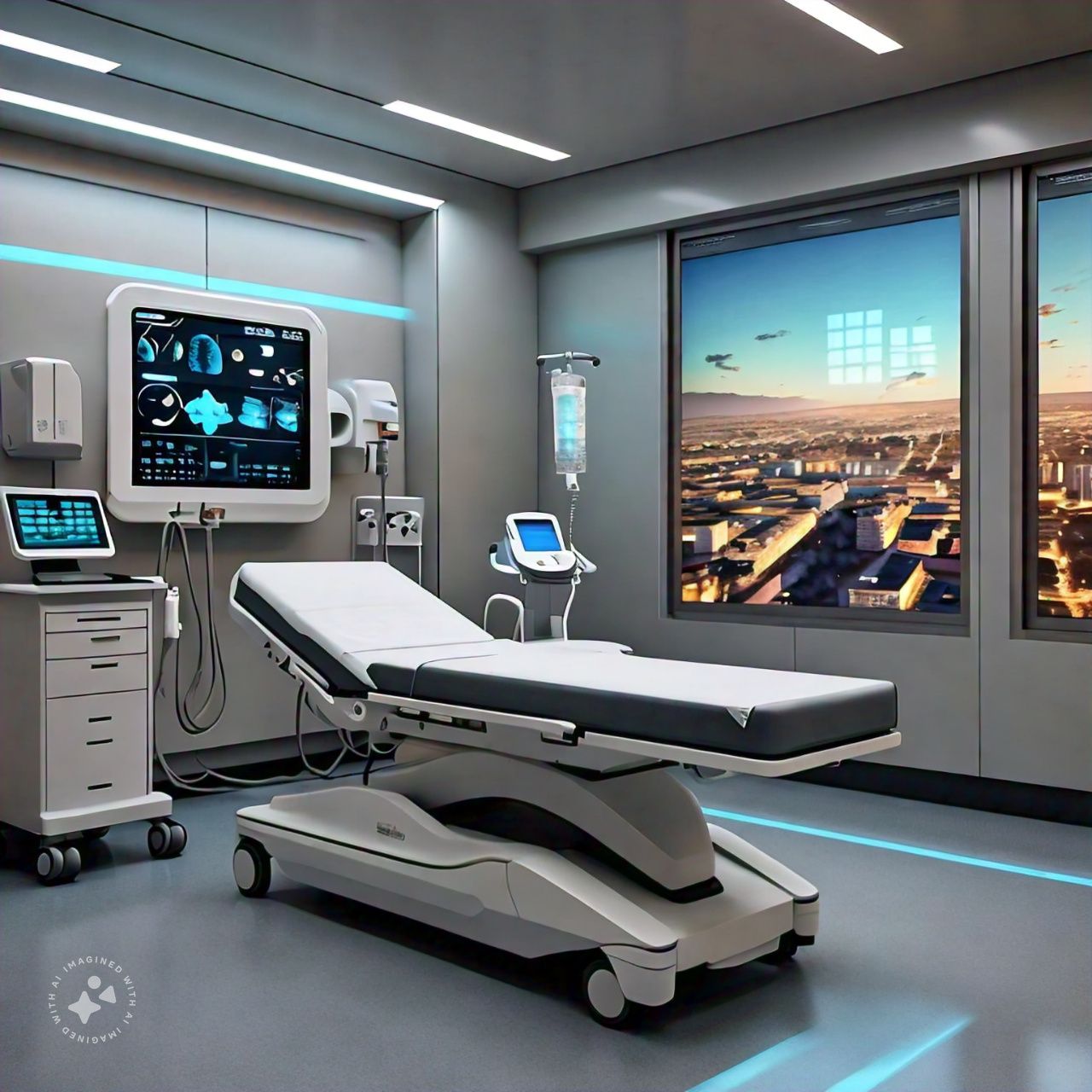New Delhi, 04-July-2024

The Transformative Role of AI in Healthcare: A New Era of Medicine
Artificial Intelligence (AI) is revolutionizing healthcare, offering unprecedented opportunities to improve patient outcomes, enhance efficiency, and reduce costs. This blog explores the diverse applications of AI in healthcare, the benefits it brings, and the challenges that lie ahead.
Applications of AI in Healthcare
1. Medical Imaging and Diagnostics
AI algorithms can analyze medical images with remarkable accuracy, aiding in the early detection and diagnosis of diseases such as cancer, cardiovascular diseases, and neurological disorders. AI-powered tools can highlight abnormalities in X-rays, MRIs, and CT scans, assisting radiologists in making more precise diagnoses.
2. Predictive Analytics
AI can predict disease outbreaks, patient admissions, and the likelihood of developing certain conditions based on historical data and trends. Predictive analytics help healthcare providers allocate resources more effectively and implement preventive measures, ultimately improving patient care.
3. Personalized Medicine
AI enables the customization of treatment plans based on individual patient data, including genetic information, lifestyle, and medical history. By analyzing this data, AI can identify the most effective therapies and interventions for each patient, enhancing the efficacy of treatments and reducing adverse effects.
4. Drug Discovery and Development
AI accelerates the drug discovery process by identifying potential drug candidates, predicting their success rates, and optimizing clinical trial designs. This not only reduces the time and cost associated with bringing new drugs to market but also increases the likelihood of discovering novel treatments.
5. Virtual Health Assistants
AI-powered virtual health assistants and chatbots provide patients with instant access to medical information, symptom checking, appointment scheduling, and medication reminders. These tools enhance patient engagement and support self-management of health conditions.
6. Robotic Surgeries
AI-driven robotic surgery systems offer enhanced precision, flexibility, and control, leading to better surgical outcomes. These systems can assist surgeons in performing complex procedures with greater accuracy and minimal invasiveness.
7. Administrative Efficiency
AI automates administrative tasks such as billing, coding, and scheduling, reducing the burden on healthcare staff and minimizing errors. This allows healthcare professionals to focus more on patient care and less on paperwork.
Benefits of AI in Healthcare
Challenges and Considerations
The Future of AI in Healthcare
The future of AI in healthcare is promising, with continuous advancements expected to further enhance its impact. Key trends to watch include:
AI is transforming healthcare by improving diagnostic accuracy, personalizing treatments, and enhancing operational efficiency. As technology continues to evolve, AI's potential to revolutionize healthcare will only grow, offering new hope and possibilities for patients and providers alike. Embracing AI in healthcare not only promises better patient outcomes but also heralds a new era of medicine characterized by innovation, efficiency, and equity.